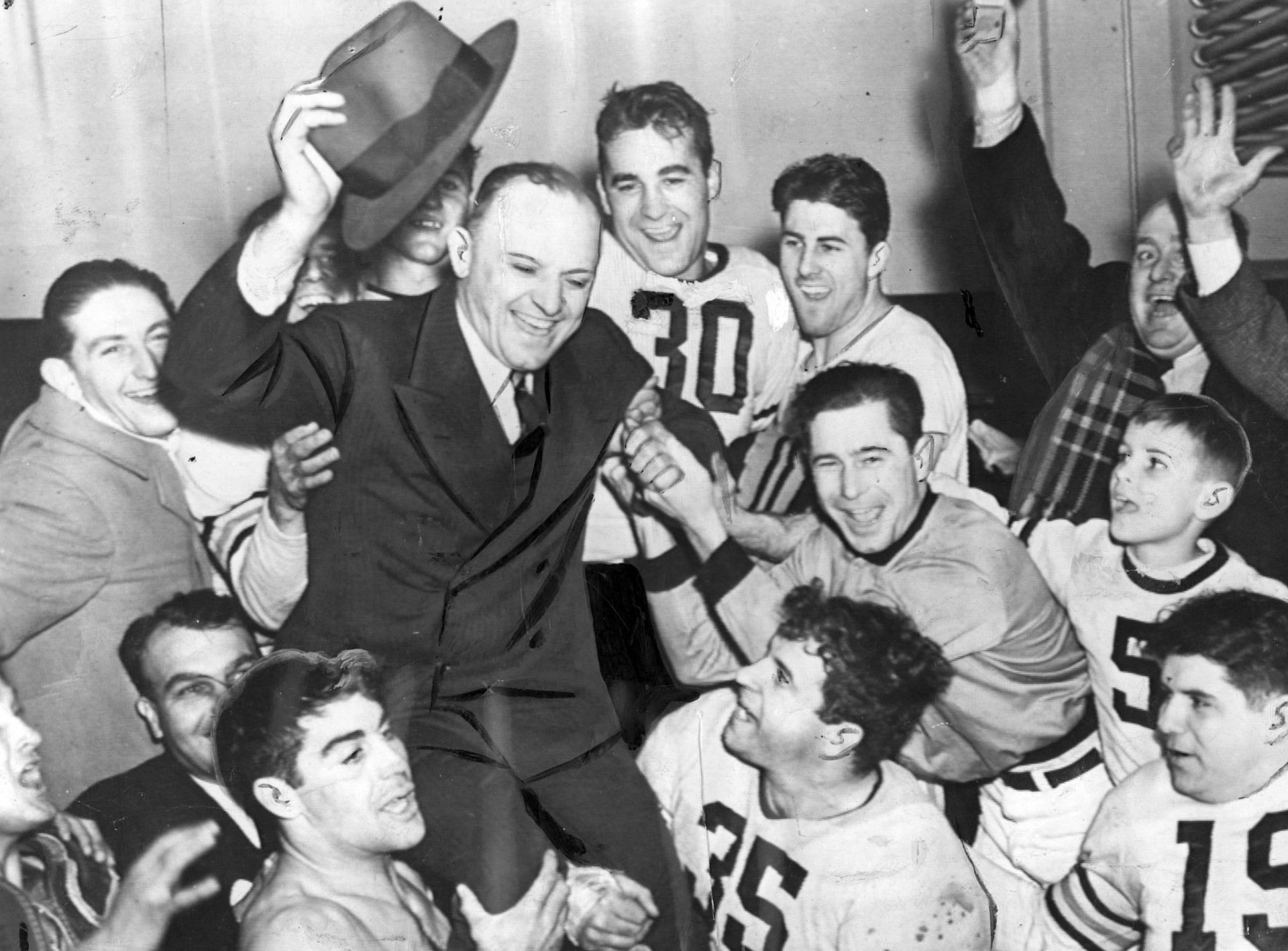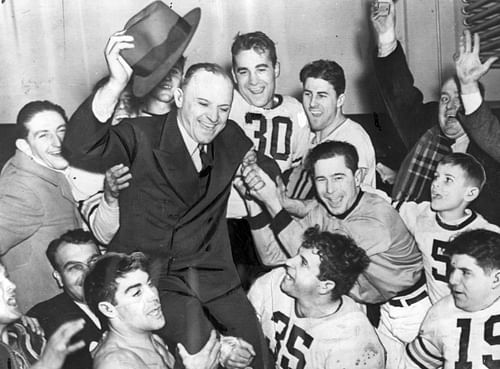
NFL Countdown: Bears annihilate Washington 73-0 to record historic playoff win

In December 1940, the Chicago Bears and the then-Washington Redskins delivered a performance that is still discussed over eighty years later. But it is remembered by fans of both teams for very different reasons.
If you're a Washington fan, it's one of the most embarrassing moments in your team's history; for the Bears, it's one of the most revered. But the 73-0 result only tells half of the story. If you dig a little deeper, you will soon realize that Washington were the architects of their own downfall.
Weeks before the Championship game, the Bears traveled to Griffith Stadium in Washington for a regular-season game. Washington would emerge as 7-3 winners in a tight affair, but some late controversy marred the game.
On the game's final play, the Bears thought there should have been a pass interference call in the end zone, which was missed. When word of the Bears' protests reached Washington owner George Preston Marshall, he was not impressed.
Marshall labeled Chicago a bunch of crybabies, quitters, and frontrunners, a comment that he would live to rue a few weeks later. Once it was confirmed that Chicago and Washington would meet to contest the Championship game, Bears head coach George Halas started to lay the foundation for what would become one of the franchise's greatest ever moments.
Halas took newspaper clippings of Marshall's comments and pinned them to the dressing room walls, reminding the players to read them daily. When December 8, 1940, arrived, the Bears were ready to exact their revenge.
The Championship Game of 1940
George Halas is regarded as an inspirational leader, a great motivator, and a brilliant man-manager. Before the game, he kept things simple, as Marshall had already written his team talk for him. Before the players left the locker room, these were his final words to them:
"Gentlemen, this is what George Preston Marshall thinks of you. Well, I think you're a great football team, the greatest ever assembled. Now, go out there on the field and prove it!"
It took two plays for the Bears to heed Halas' words. Fullback Bill Osmanski took a handoff from quarterback Sid Luckman and had a path cleared for him by a brutal block from tight end George Wilson that leveled two Washington defenders, allowing Osmanski to scamper in for a 68-yard touchdown.
By the time the teams reached half-time, the score was 28-0. But the shellshocked Washington locker room was oblivious to what awaited them. The third quarter was one-way traffic, as the Bears racked up four more touchdowns, including three pick-6s from Hampton Pool, George McAfee, and Clyde Douglas "Bulldog" Turner.
Things got so bad for Washington that officials asked Halas not to kick for extra points as they were running out of footballs. But the distress continued for Washington, and Chicago only called it a day after Harry Clarke had run in for their eleventh touchdown of the game.
Even after the scoring was done, Halas' men were not finished rubbing it in. They called a pass and then a fake pass on the game's final two plays, despite being 73-0 ahead. Most observers claim that Chicago effectively taunted Washington for the entire second half.
Some Washington fans who are old enough to remember the game will try to convince people it could all have been so different. At 7-0 in the first quarter, tight end Charley Malone dropped a simple touchdown pass that would have drawn Washington level. When asked about the pivotal moment after the game and whether it had changed the outcome, Washington's legendary quarterback Sammy Baugh said:
"Yeah, it would have been 73-6."
The Bears had eight interceptions in the game, and although teams were much looser with the football in those days, it is still an incredible stat. It is made all the more startling because it came against Sammy Baugh, one of the greatest quarterbacks of all time and a member of the NFL's 50th, 75th, and 100th-anniversary teams.
Chicago's run-heavy offense also rushed for nearly 400 yards against the second-best team in the nation.
For Washington owner George Preston Marshall, it was a humbling experience. Still, he wasn't short of a word or two for his humiliated team, as he referred to them as quitters in post-game interviews, though he would later retract his statement. If only he could take back the one he made on that fateful November day in 1940.